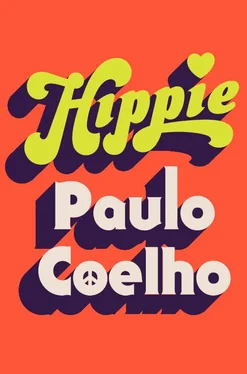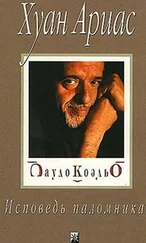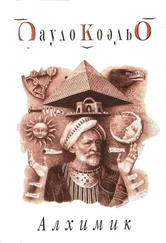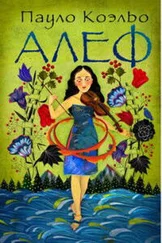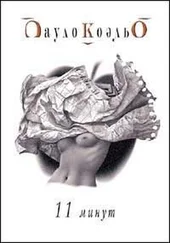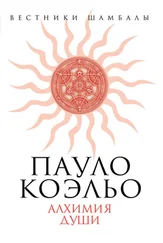Far from their families’ never-ending laments, they were now free people, Europe was a safe place (as long as they didn’t get any ideas and cross the famous Iron Curtain to “invade” some Communist country), and they felt satisfied because our travels teach us everything we need to know for the rest of our lives, as long as there’s no need to explain this to our parents.
“Dad, I know you want me to earn a diploma, but I can do that at any point in my life, what I need now are experiences.”
There weren’t any fathers who could make sense of this logic, and so the only thing left for their children to do was save some money, sell their things, and sneak out of the house while the rest of the family was sleeping.
Sure, Karla was surrounded by those who were free and determined to have experiences that most people lacked the courage to pursue. So why not go to Kathmandu by bus? Because it’s not Europe, they replied. We don’t have any idea what things are like over there. If something happens here, we can still go to the consulate and ask to be sent back to our countries (Karla hadn’t heard of a single case where this had happened, but legend had it this was possible, and after much repetition legend becomes truth).
By the fifth day spent waiting for the man she’d choose as her “companion,” she was growing desperate—she was spending money on a hostel when she could easily be sleeping on the Magic Bus (this was the official name of the bus that cost a hundred dollars and covered thousands of miles). She decided to go see a clairvoyant she’d been in the habit of visiting before going to Dam Square. The clairvoyant’s place, as always, was empty—in September 1970, everyone either had paranormal capabilities or was in the process of developing them. But Karla was a practical woman, and though she meditated daily and was convinced she’d begun to open her third eye (an invisible spot in the middle of the forehead), up until then the men in her life had been all wrong for her, even when her intuition had assured her they were all right.
And so, she decided to appeal to the psychic, especially because her endless wait (nearly a week had already passed, an eternity!) was making her think she ought to travel on with a female companion. Though two women, on their own, crossing many countries could mean suicide; they would, at a minimum, be greeted with ugly looks and, in the worst case, if her grandmother were to be believed, they would end up being sold as “white slaves” (the term, for her, had an erotic sound but she didn’t care to put her own flesh on the line to test it out).
The clairvoyant, whose name was Layla, was a little older than Karla. She wore clothes of white and the angelic smile of someone in contact with a Higher Being and welcomed Karla with a bow (Finally, someone to help me pay the day’s rent, she must have thought to herself). She asked Karla to sit, which she did, and then the woman praised her for having chosen the energy center in the room. Karla pretended to herself that she’d truly managed to open her third eye, but her subconscious warned her that Layla must have said the same thing to everyone—or more precisely, to the few who entered that place.
At any rate, all this was irrelevant. Incense was burned (“This one is from Nepal,” the clairvoyant told her, but Karla knew it had been manufactured nearby—incense was one of the hippies’ major industries, along with necklaces, batik shirts, and patches with the peace sign or flowers or the phrase “Flower Power” to be sewn onto clothing). Layla grabbed a deck of cards and began to shuffle them, asked Karla to cut the deck, placed three cards on the table, and launched into the most conventional of interpretations. Karla interrupted her.
“I didn’t come here for this. I only want to know if I’m going to find someone to go with me to the same place that you told me”—she placed great emphasis on the words the same place that you told me, because she didn’t want to attract bad karma; if she’d said only I want to go to the same place, perhaps she would have ended up in some suburb of Amsterdam where the incense was actually made—“the same place you told me the incense came from.”
Layla smiled, though her vibe had changed entirely—inside, she was burning with rage at having been interrupted at such a solemn moment.
“Yes, of course you will.” It’s the duty of every clairvoyant and tarot reader to tell her or his clients what they want to hear.
“When?”
“By end of the day tomorrow.”
They were both taken by surprise.
For the first time, Karla felt the other woman was telling her the truth: her tone was positive, emphatic, as though her voice were coming from another dimension. Layla, for her part, was overcome with fear—it wasn’t often things happened that way, and when they did she was afraid of being punished for entering that world which seemed both false and true without the proper reverence, though she justified her actions every night in her prayers, claiming that everything she was doing there on Earth was to help others to approach the things they wanted with greater positivity.
—
Karla immediately stood up from her energy center, paid for her half session, and left before the guy she was waiting for could arrive. “By end of the day tomorrow” was vague, it could well have meant that very same day. But whatever the case, she now knew she was waiting for someone.
She returned to her spot in Dam Square, opened the book she had been reading, known then to only a few (which lent its author cult status): The Lord of the Rings, by J. R. R. Tolkien, a tale of mythic lands like those she intended to visit. She pretended not to hear the young men who every now and then came to bother her with some stupid question in a feeble attempt to begin a still feebler conversation.
Paulo and the man from Argentina had already discussed just about everything it was possible to discuss and now looked out on the flat terrain, but their minds were elsewhere—they both carried with them memories, names, curiosity, and above all a deep fear of what might happen when they reached the Dutch border, likely no further than twenty minutes away.
Paulo started to tuck his long hair inside his coat.
“You think you’re going to fool the guards like that?” the Argentinean asked him. “There’s nothing they haven’t seen, absolutely nothing.”
Paulo gave up. He asked his companion whether he wasn’t worried.
“Of course I am. Especially because I already have two Dutch stamps on my passport, so they start to think I’m coming a bit too often. And this can mean only one thing.”
Drug trafficking. But as far as Paulo knew, drugs were legal there.
“Of course not. They crack down hard on opioids. Same thing for cocaine. Of course, there’s no way for them to control LSD, all you have to do is dip the page of some book or a piece of cloth in the mixture and then cut it up and sell all the pieces. But everything they can detect can land you in prison.”
Paulo thought it better to stop their conversation there. He was dying to know whether his fellow traveler was carrying something, but simply knowing would make him an accomplice. He had been in prison once before, although he had been totally innocent—in a country with the same decal on the doors of every airport: BRAZIL: LOVE IT OR LEAVE IT.
When we try to dismiss negative thoughts, it only attracts more diabolic energy, and for Paulo, the simple act of remembering what had happened in 1968 not only set his heart racing but had him reliving in excruciating detail that night at a restaurant in Ponta Grossa, in Paraná—a state in Brazil known for issuing passports to blond and blue-eyed men and women.
Читать дальше
